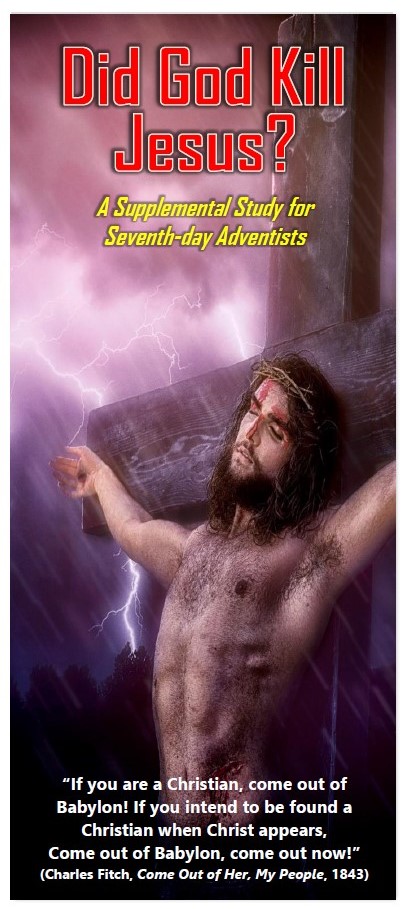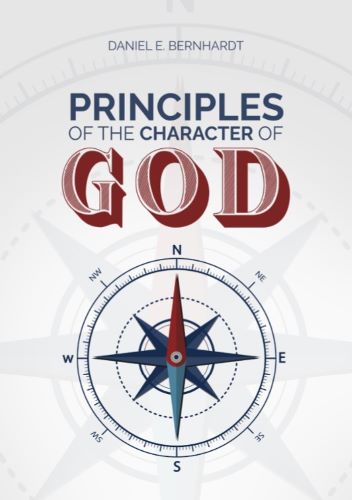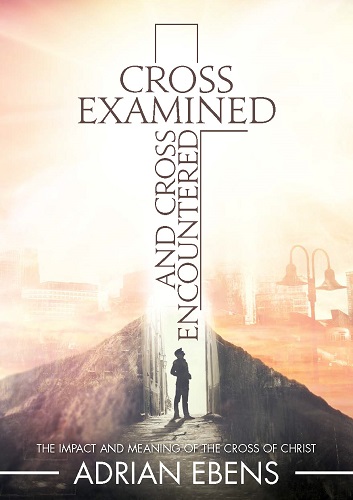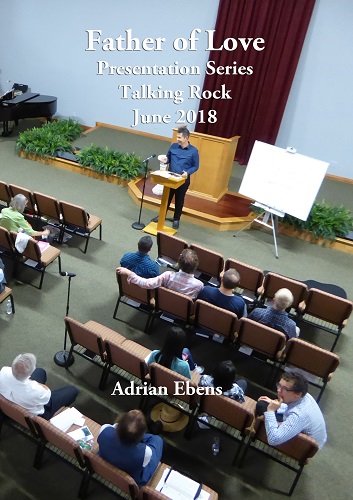Samuel Spear's article: The Canright Context
Nearly every church scholar and historian, (excepting Merlin Burt), makes reference to Samuel Spear's article as the earliest evidence of denominational "Trinitarian" acceptance. Terry Hill wrote: "The truth of the matter is that Spear’s article, whether it is termed ‘The Subordination of Christ’ or ‘The Bible Doctrine of the Trinity’, regardless of the claims that the publication of it by our denomination is proof that trinitarianism was acceptable to many Seventh-day Adventists, actually proves exactly the opposite. I say this because this article shows that Samuel Spear was just as much against the extreme speculations of the trinity doctrine as were the pioneers of Seventh-day Adventism. In other words, what Spear wrote in his article was what was then believed by Seventh-day Adventists. This is why it was included in our publications."
These observations are spot on! It is amazing how many Adventist researchers and scholars have missed this point completely. Spear's article "The Subordination of Christ" was actually viewed by Adventists as a "trophy" article they pointed to when questioned about their own non-trinitarian beliefs. (see ST Jan. 23, 1893 pg. 192 question 73). In other words Spear, a non-Adventist, was speaking out against the extreme speculations of creedal trinitarianism. Therefore, don't argue with us (Adventists) about the Trinity, argue with one of your own (from mainstream Protestantism).
Why would anyone argue with Adventists about the Trinity in the first place? The biggest reason, not entirely, but primarily: because of D. M. Canright. Canright joined the Advent movement in 1859. He became a pastor and evangelist who was very succesful in spreading the Advent message. Canright was a zealous non-trinitarian along with all the other church leaders at the time. Yet sadly, Canright left the Adventist church in 1887.
In 1888 Canright accepted the Trinity doctrine and wrote a book denouncing many of the same doctrines he had previously believed as an Adventist. His book is entitled "Seventh-day Adventism Renounced." On page 25 of of the second edition (1889) we read the following bold, blatant and blanket accusation: “They [Adventists] reject the doctrine of the Trinity.” "Adventism renounced was republished for many years (even today), and some 14 editions.
The following realization is commonly overlooked and underestimated by most researchers: Canright's book is FOUNDATIONAL for all Adventist critics, past, present, future. (wikipedia) "His book Seventh- day Adventism Renounced became the chief weapon used by
Evangelicals against Seventh-day Adventists..." (Adventism in America: a history - Page 105, Gary Land -1986) Notice how significant Canright's book was to denominational leaders at the time (1889).
"Nearly every religious paper in Christendom has heralded his apostasy, and become, to some extent, the medium through which he has vented his feelings toward a cause that has made him all that he is, and that he has not ceased to oppose with all his might since he forsook it....Elder Canright has written a book, as nearly everybody knows, which is directed against our work and people. We venture to say that no book published in the last decade, unless it be 'Robert Elsmere,' has received such extensive free advertisement as this production." (see here)
With the tremendous influence and wide impact of Canright's book, it's not hard to conclude that nearly every question about the Trinity directed toward the church from outside sources, resulted directly or indirectly from Canright's accusation: “They [Adventists] reject the doctrine of the Trinity.”
With this in mind, it's not coincidental that when Samuel Spear (a non-Adventist), published his article "The subordination of Christ" in a religious journal called the "New York Independent" (1989), M. C. Wilcox reprinted it upon request, changing the title to "The Bible Doctrine of the Trinity." Did M. C. Wilcox believe in a creedal Trinity in any form? No! Everything he ever published was distinctly non-trinitarian. [ed. Another Wilcox, Francis M., also a Review editor was instrumental in beginning the process of incorporating the Trinity into the church's fundamental beliefs] Spear's article was never intended (even from himself) as defining or explaining creedal Trinitarianism. It was intended primarily as an expose AGAINST extreme non-biblical speculations of the same.
So if the Adventist church was not sympathetic to the creedal Trinity, why change Spear's title from ‘The Subordination of Christ’ to ‘The Bible Doctrine of the Trinity’? Simply, as a hook or leader that superficially appears sympathetic to a specific doctrine when in reality it is against it. The following are other examples of these types of article titles from 'The Bible Students' Library: # 67. "Bible Election" which appears to by sympathetic to the false doctrine of predestination. # 111. "Tormented Forever and Ever" which appears to by sympathetic to the false doctrine of eternal torment. #121. "The Temporal Millennium" which appears to by sympathetic to the false doctrine of Post-millennialism."
Samuel Spears article, along with its continued publication in "The Bible Students Library" for many, many, years was the first "indirect" response to Canright's accusation: “They [Adventists] reject the doctrine of the Trinity.” For that time, and crisis, it was the equivalent of "Seventh-day Adventists Answer Questions on Doctrine (1957). Yet, (unlike Q.O.D.), Spear's article, (as edited and republished by Wilcox), was designed not as an affirmation to any Trinity creed, but rather a dire warning against all unbiblical speculations.
Although Spear's article was first re-published by Adventists within the context of promoting non-trinitarianism, some Adventists of later generations mistakenly believed it taught a semi-trinitarian Adventist hybrid of beliefs that differed with some creedal Trinity speculations, while adhering to many of the same. One such was M. L. Andreasen. Much is said by denominational scholars concerning Andreasen's "conversion" to trinitarianism. Yet very little attention is paid to the precise nature of his Trinitarian confession. No doubt Andreasen saw himself as a Trinitarian, and when he elaborated on this belief he republished Samuel Spear's article "The Bible Doctrine of the Trinity" in "The Book of Hebrews" (1948 pg. 40).
The simple irony is that while Andreasen has become the denominational poster-boy of the anti to pro-trinitarian position, Andreasen's confession (Samuel Spear's article), could not be endorsed by any known Trinitarian creed, nor denominational Adventism itself. Therefore, even unknowingly, Adreasen continued to promote the original intent of the pioneers when they republished Spear's article in "The Bible students" Library: non-trinitarianism. That's some good irony!





